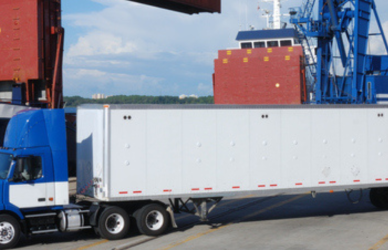In today’s digital age, the transportation industry has witnessed a significant transformation with the introduction of connected trucking fleets. While these advancements offer numerous benefits, they also expose trucking fleet managers to the ever-growing threat of cyber attacks. Protecting valuable data and ensuring the smooth operation of the fleet has become paramount.
Below are a few ways you can protect your fleet from cyber threats.
Stay Vigilant Against Phishing Attacks
Phishing attacks remain one of the most common entry points for cybercriminals. Fleet managers should educate their employees about the signs of phishing emails, such as suspicious links or attachments, and encourage them to verify the legitimacy of any requests for sensitive information. Implementing robust email filters and regularly updating antivirus software are crucial steps towards reducing the risk of falling victim to such attacks.
Implement Strong Access Controls
Controlling access to critical systems and data is vital in preventing unauthorized entry. Fleet managers should enforce strong passwords, implement multi-factor authentication, and regularly update access credentials. Additionally, establishing user roles and permissions based on job responsibilities can limit unnecessary access and minimize potential vulnerabilities.
Regularly Update Software and Firmware
Keeping all connected devices, including onboard computers and telematics systems, up to date with the latest software patches and firmware releases is vital for cybersecurity. Manufacturers often release updates to address known vulnerabilities, and fleet managers should establish a process to ensure timely installations and patches for all connected devices.
Secure Wireless Communication
Wireless communication is the backbone of connected trucking fleets, however, it also poses security risks if not properly secured. Fleet managers should encrypt wireless communications to protect data transmission between the vehicles and backend systems. Implementing Virtual Private Networks (VPNs) and ensuring the use of secure Wi-Fi networks can significantly reduce the chances of unauthorized access.
Conduct Regular Security Audits
Periodic security audits play a crucial role in identifying potential vulnerabilities within the fleet’s infrastructure. It is essential to assess the network architecture, hardware, and software components for any weaknesses. Employing third-party security experts can provide an unbiased assessment of the fleet’s cybersecurity posture, allowing fleet managers to address identified gaps effectively.
Educate Employees on Cybersecurity
Human error remains a significant factor in successful cyber attacks. Fleet managers should conduct regular training sessions to educate employees about best practices for cybersecurity. This includes recognizing and reporting suspicious activities, adhering to security protocols, and being cautious when sharing sensitive information. By fostering a culture of cybersecurity awareness, fleet managers can empower their team to be the first line of defense against cyber threats.
By adopting these measures and staying proactive, trucking fleet managers can ensure the safety and security of their operations in the digital age. Remember, addressing cybersecurity challenges is an ongoing process. By staying informed about the latest trends and continuously evolving security measures, trucking fleet managers can adapt to the ever-changing cybersecurity landscape and protect their connected trucking fleets effectively.











